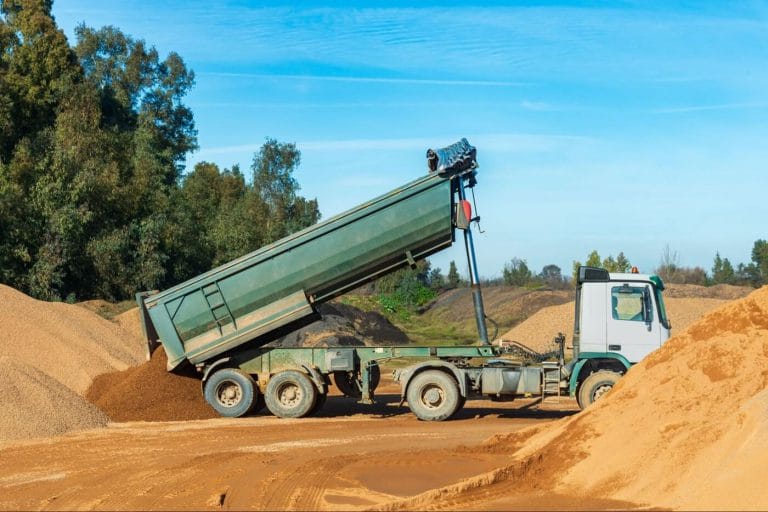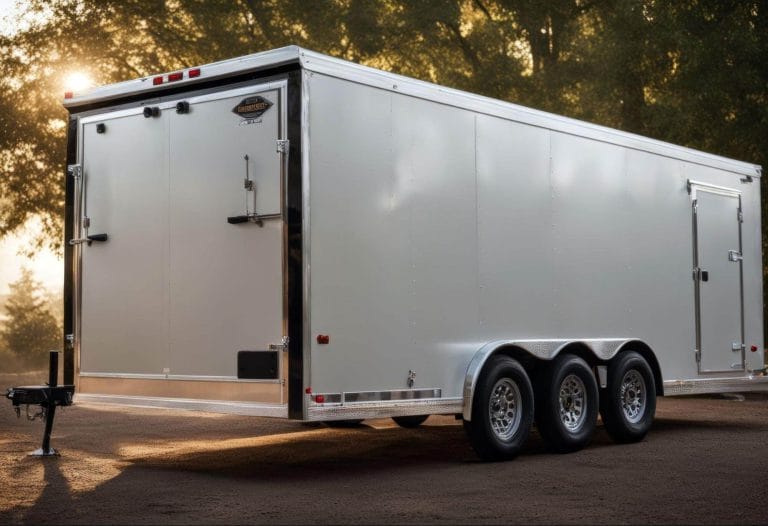When it comes to towing heavy loads, selecting the right hitch is crucial for both safety and convenience. Two of the most popular types of hitches are gooseneck and 5th wheel hitches. While they might seem similar at first glance, each has distinct features, advantages, and ideal use cases that can make one a better fit than the other depending on your towing needs.
Understanding the difference between a gooseneck and a 5th wheel hitch is essential for anyone looking to tow large trailers, whether it’s for recreational or commercial purposes. In this article, we’ll dive into the gooseneck vs. 5th-wheel debate, explore their key differences, and help you decide which hitch type might be the best fit for your vehicle and towing requirements.
What Is a Gooseneck Hitch?
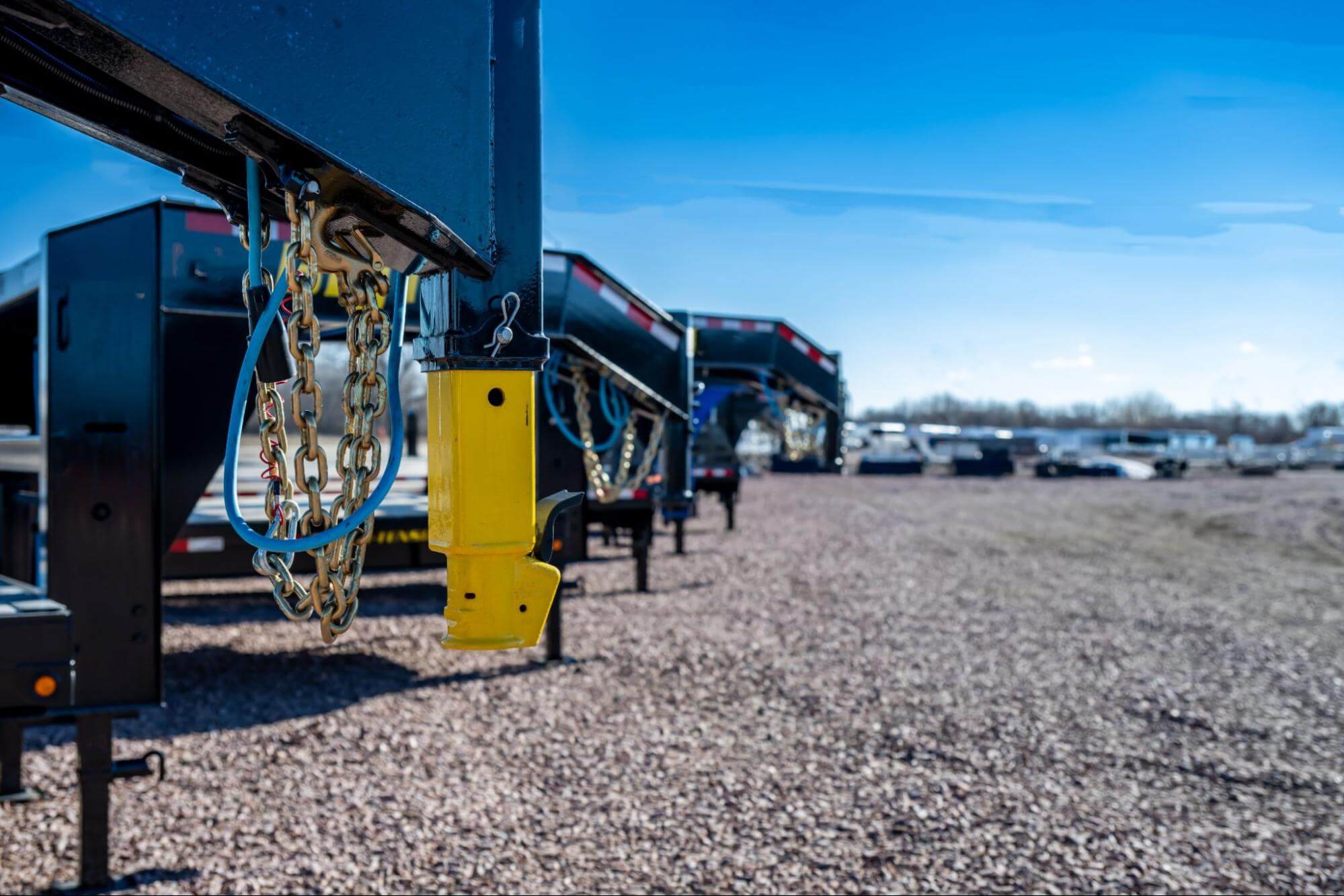
A gooseneck hitch is a type of hitch designed primarily for towing heavy loads such as livestock trailers, flatbeds, and utility trailers. Unlike a traditional hitch, which connects to the rear bumper, a gooseneck hitch mounts directly into the bed of a pickup truck, providing a tighter turning radius and better stability for larger loads.
The hitch consists of a ball mount that protrudes from the truck bed, allowing for easy connection with the gooseneck trailer’s coupler. This setup is ideal for those who need to maneuver their trailers in tighter spaces or over uneven terrain, making it popular among farmers, horse owners, and those who frequently haul heavy equipment.
What Is a 5th-Wheel Hitch?
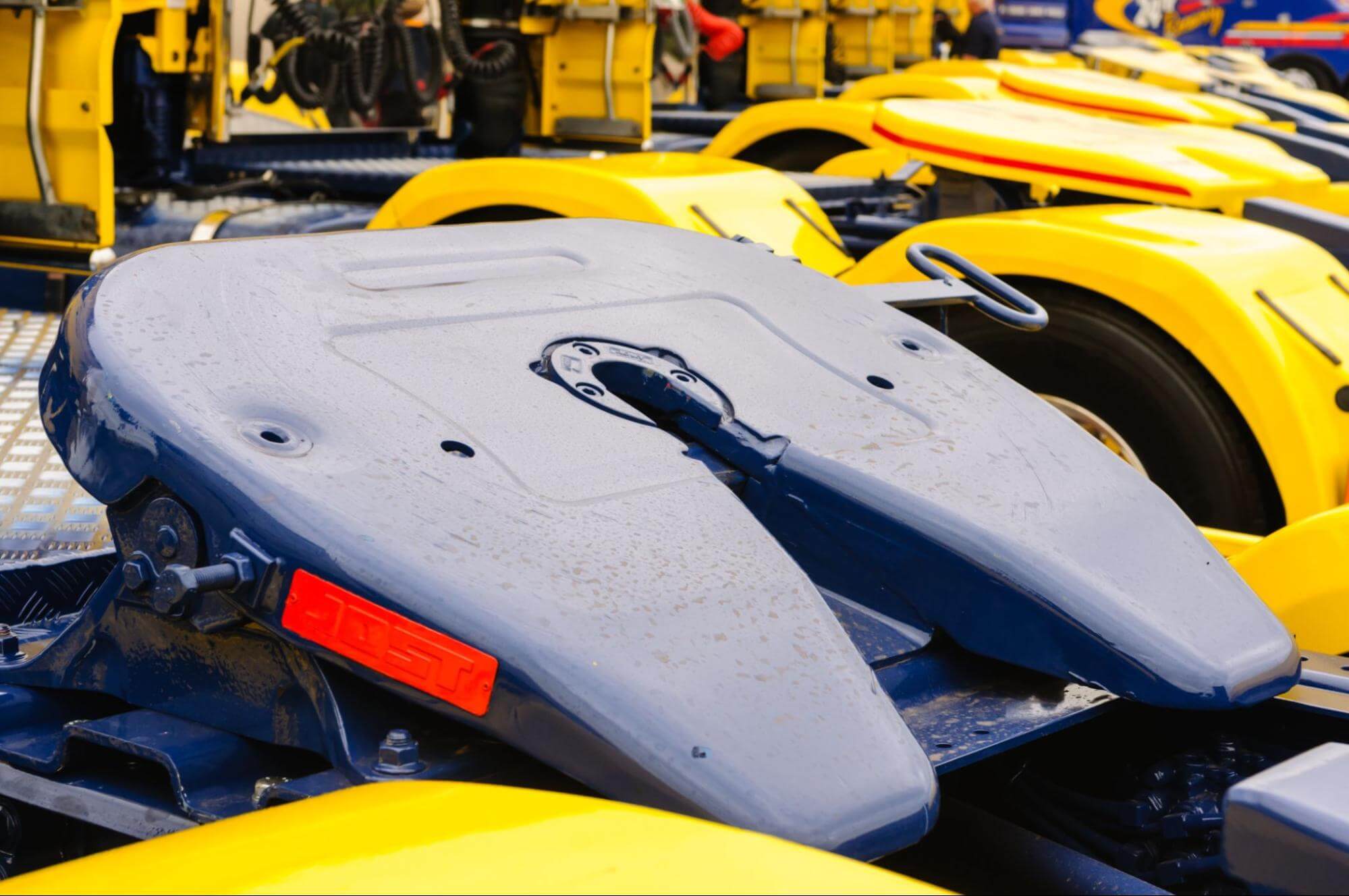
A 5th-wheel hitch, named after its distinctive shape, is another heavy-duty hitch that attaches directly to the bed of a pickup truck. This type of hitch is commonly used for towing large trailers, RVs, and campers due to its design, which offers superior stability and a smoother ride compared to other hitches.
The 5th wheel hitch features a plate that resembles a wheel and a locking mechanism that secures the trailer to the truck. This plate sits above the truck’s rear axle, distributing the trailer’s weight evenly over the vehicle’s frame, which improves handling and reduces sway. Due to its ability to handle heavy loads and its easy coupling system, the 5th wheel hitch is a favorite among long-haul travelers and RV enthusiasts.
5th-Wheel Hitch vs. Gooseneck: Key Differences
Understanding the key differences between gooseneck and 5th wheel hitches can help you choose the right setup for your towing needs. Here are the main distinctions:
Hitch Design and Placement
Gooseneck hitches use a ball and coupler system, similar to traditional bumper hitches but installed in the truck bed. The hitch ball is mounted on the truck bed floor, and the trailer attaches via a gooseneck coupler. This setup allows for more freedom of movement and a tighter turning radius.
In contrast, 5th-wheel hitches are mounted on a large, flat plate above the truck bed, with a kingpin that locks into place. This design provides a secure, pivoting connection directly over the truck’s rear axle, distributing the load more evenly and enhancing stability.
Towing Capacity and Load Distribution
Both hitches are designed for heavy loads, but a 5th-wheel hitch generally offers higher towing capacities and better weight distribution. This makes it ideal for towing larger RVs or trailers with a significant load. Gooseneck hitches, while still capable of towing heavy loads, are typically used for trailers that require tight maneuvering.
Ease of Use and Installation
Installing a gooseneck hitch is often simpler and less invasive, with fewer components involved. However, connecting and disconnecting a gooseneck trailer can be more challenging due to the coupler’s position. On the other hand, 5th-wheel hitches are bulkier and more complex to install but offer easier coupling and uncoupling processes, which can be more user-friendly, especially for beginners.
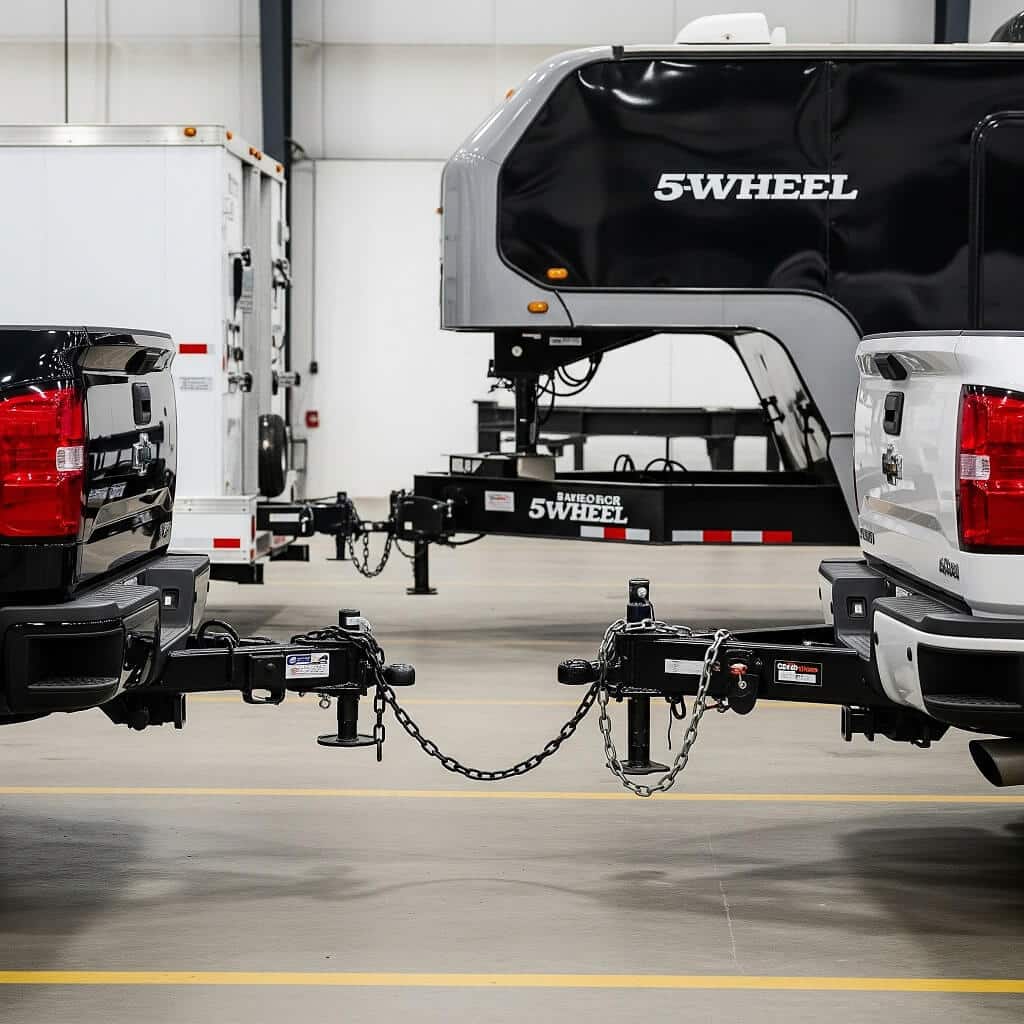
5th-Wheel vs Gooseneck: Pros and Cons
Pros and Cons of Gooseneck Hitches
Pros
- Compact Design: Gooseneck hitches are more compact than 5th-wheel hitches, leaving more usable space in the truck bed when not towing. This makes them ideal for users who frequently switch between towing and other activities that require an open bed.
- Maneuverability: The ball-and-coupler design allows for a tighter turning radius, making gooseneck hitches great for navigating tight spaces or turning sharp corners, which is particularly beneficial for farm or construction use.
Cons
- Less Stability: Gooseneck hitches generally provide less stability compared to 5th-wheel hitches, especially at higher speeds or when towing larger trailers. This can make them less suitable for long-distance travel with heavy loads.
- Difficult to Connect: The positioning of the coupler under the trailer can make it more challenging to connect and disconnect compared to the user-friendly coupling system of a 5th-wheel hitch.
Pros and Cons of 5th Wheel Hitches
Pros
- Superior Stability: 5th-wheel hitches provide better stability and control, particularly for larger, heavier trailers. The hitch design reduces sway and offers a smoother ride, which is ideal for long-distance towing or traveling on highways.
- Easy Coupling: The kingpin and locking mechanism of a 5th wheel hitch make coupling and uncoupling more straightforward, which is advantageous for less experienced users or those who frequently hitch and unhitch.
Cons
- Less Bed Space: 5th-wheel hitches occupy more space in the truck bed, reducing the available area for cargo when the hitch is installed. This can limit the versatility of the truck for non-towing activities.
- Higher Cost: Generally, 5th wheel hitches are more expensive than gooseneck hitches. The additional stability and ease of use come at a higher price, which can be a consideration for budget-conscious buyers.
Gooseneck vs. 5th Wheel: Which is Right For You?
Deciding between a gooseneck and a 5th-wheel hitch depends on your specific towing needs and preferences. If you frequently tow heavy equipment or livestock and require a compact hitch with excellent maneuverability, a gooseneck hitch might be the better choice. It’s ideal for those who need to navigate tight spaces or require flexibility in their truck bed when not towing.
Conversely, if you plan to tow large RVs or heavy trailers over long distances, a 5th-wheel hitch offers superior stability and ease of use. Its design provides a smoother, safer ride and reduces sway, making it perfect for long-haul trips or highway driving.
Before making a decision, consider consulting with a trailer and hitch professional who can assess your specific needs and recommend the best option for your towing setup.
At Milltrailers, we offer a wide selection of both gooseneck and 5th-wheel hitches to suit any towing requirement. Visit our website or contact us today to explore our inventory and find the perfect hitch for your vehicle. Our team of experts is ready to help you make an informed decision and ensure your towing setup is safe and reliable.




